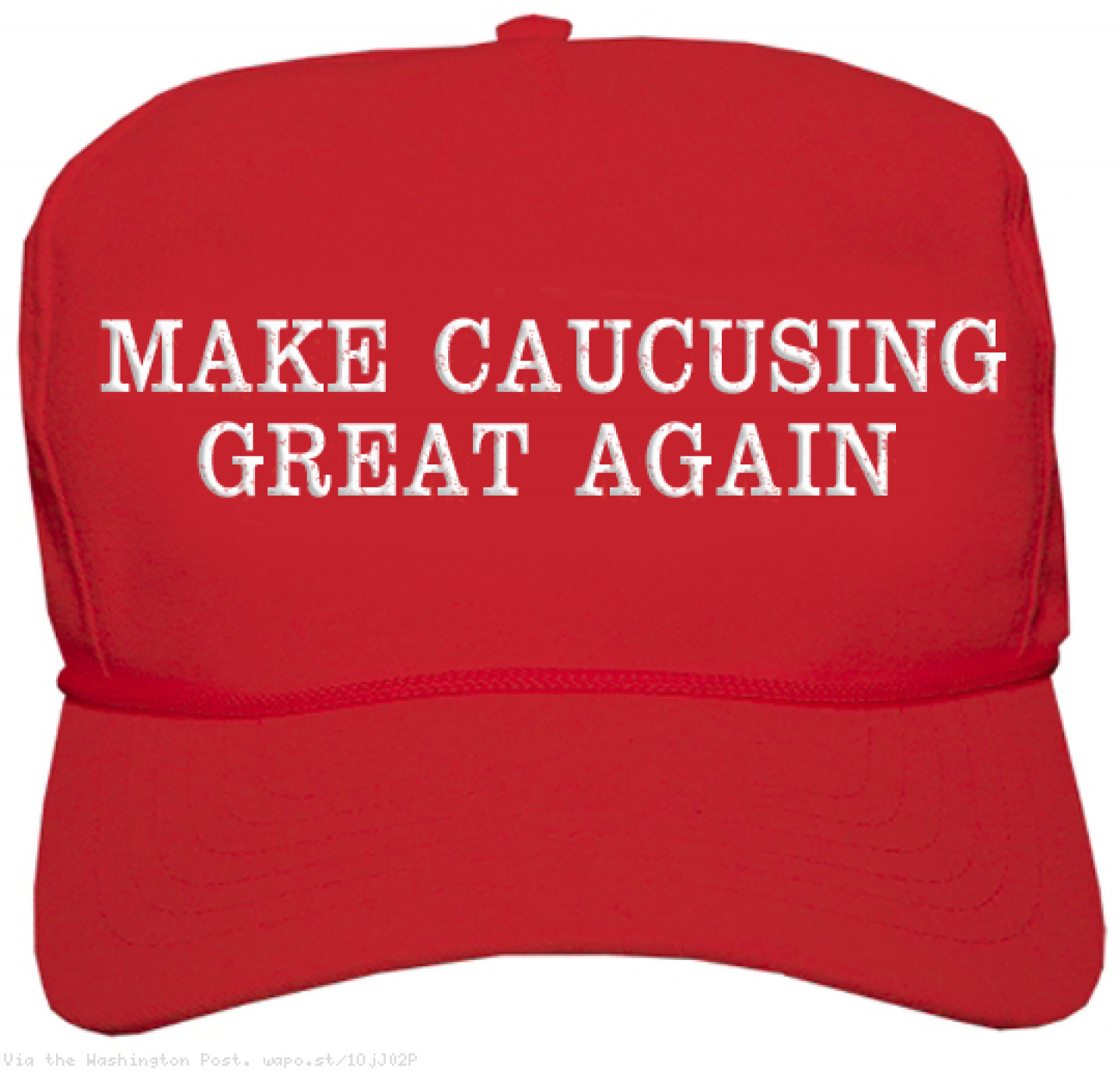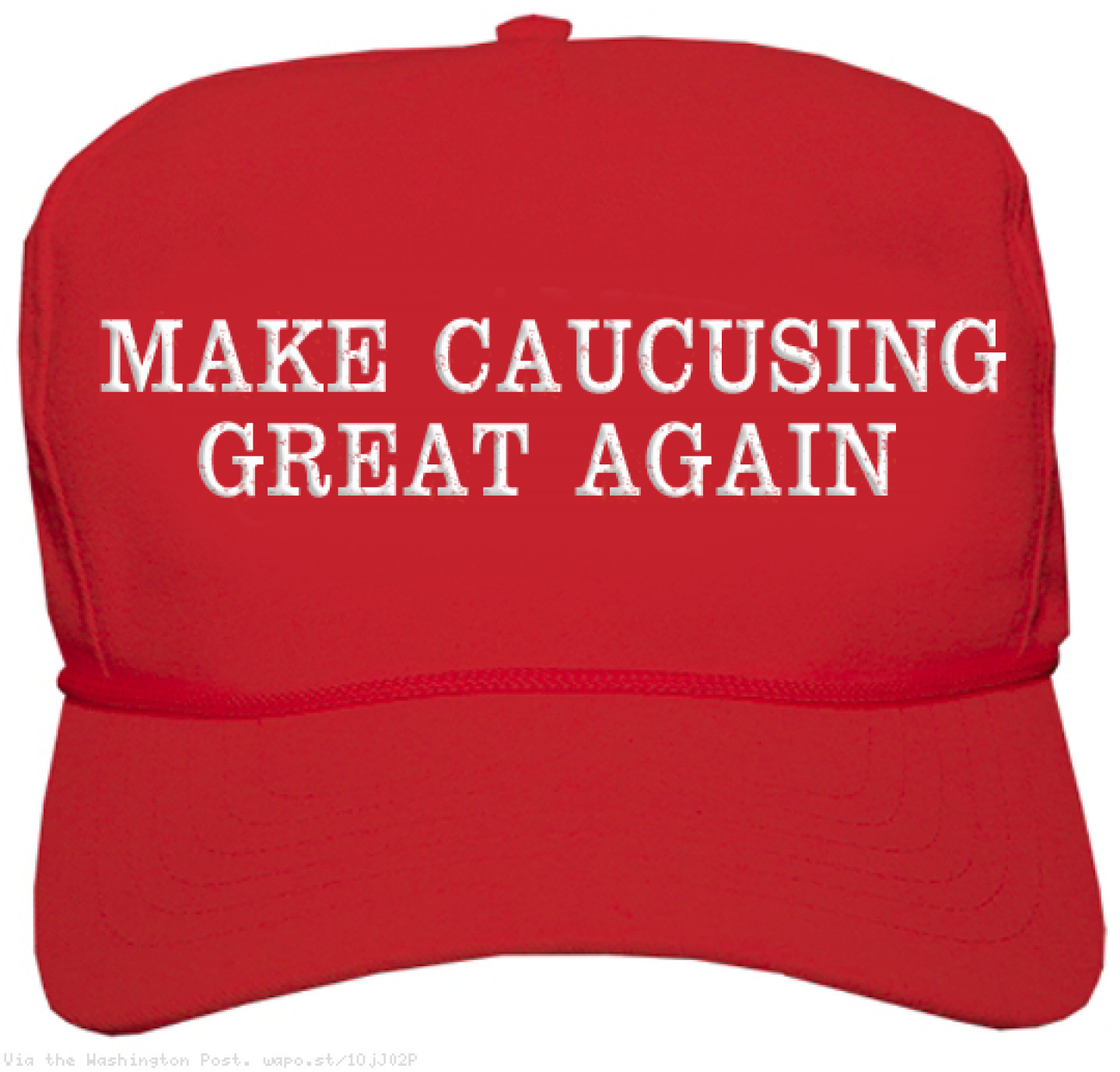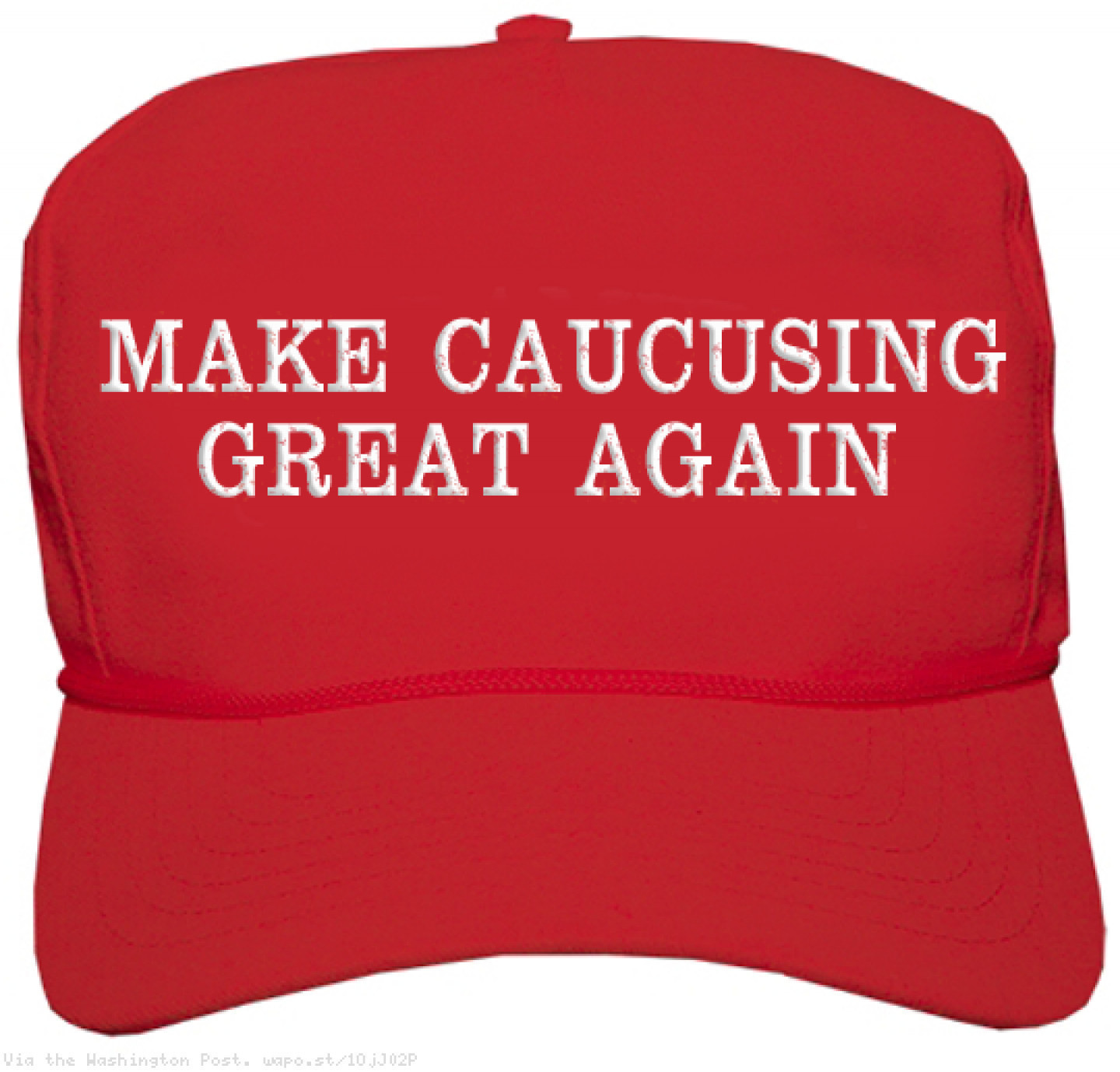I asked a potential Republican caucus-goer this morning if she had watched the debate, her response: "No way, I'm just tired of all that stuff." When asked to explain what she meant, she stated that all the name-calling and antics have really turned her off to the process.
Apparently, that message has gotten through to our Republican candidates! And not a moment too soon!
This was, by far, their best collective performance. It is as if they watched the first Democrats' Debate1)Why they keep calling it the "Democratic debate" is beyond me, and realized that a rising tide lifts all boats. Other than Mr. Kasich and Mr. Bush, both of whom we will get to in a moment, everyone came out smelling like roses. Politics is probably my third favorite sport after baseball2)Ya gotta believe! #LGM and football3)It is not clear why the sports media has not caught on to my titling this weekend's Packers at Broncos affair as "Super Bowl 49.5". Also, when was the last time Peyton was a dog at home?? Middle School?? I digress.., but the previous Republican debates were difficult to watch with all the bickering. Not so this time. Correction, mostly not so this time.4)stay tuned
The CNBC put clips of the debate up on their youtube channel, and shockingly, none of them are of the candidates ceaselessly mocking the moderators (Btw, our Youtube channel is way better).
Lucky for you, I found them. Get ready for some fun.
The Best of the Republican Debate Clips
Mr. Cruz won the debate right here:
I saw the Frank Luntz on with Megyn Kelly after the debate, and he said this was the highest scoring debate line he had ever seen. Pent up frustration, anyone? To the credit of the CNBC folk5)it is not clear me who watches this channel, once they took this verbal thrashing, the moderators stopped with the silliness and got back to policy. I, for one, felt badly for them.
Finally Now, the Trump Clips from the Republican Debate
Mr. Kasich is clearly out of his league here. It was only a matter of time before his Lehman history came up for discussion. As The Wire teaches us, "If you come at the king, you best not miss."
A quick thought on Mr. Trump. Yesterday was the first time I thought that he had a real chance at this thing. He showed an immense amount of political dexterity in completely overhauling his approach. He saw that Mr. Carson overtook him in Iowa, and instead of doubling down on the bluster, he backed off a bit. He was significantly more kind than he has been in the previous debates, and in particular, I appreciate his change in tone over immigration. It is one thing to want to discuss out immigration policy, certainly nothing offensive by talking about it in the hypothetical. But there is absolutely no reason to demonize our Latino brothers and sisters, and last night he finally stopped. I just want to thank him for elevating his dialogue.
Now that I got that out of my system, let's watch Trump be Trump.
I love the "Right" after each assertion. He's too much.
Of course, like any good entertainer, he knows how to close:
I'm pretty sure (not completely) that Mr. Trump is correct here. I recall the debate being announced as 3 hours long. Why lie, CNBC?
Did Trump win the online poll? Of course, like always. Hard to discount 300,000 votes.
https://twitter.com/g17_francis/status/659830559087026177/photo/1
Mr. Rubio vs. Mr. Bush
I was kind enough yesterday to explain to Mr. Rubio that in order to win the nomination, he needs to follow the Obama model.6)still waiting for my "Thank you." I have yet to understand why folks are so interested in Mr. Rubio's Senate attendance. It is one thing for folks that dislike Rubio to use it as further evidence that he should not be President. Mr. Bush, however, did not play this correctly:
To Mr. Rubio's credit, he was ready. Call him all the names you like, but Mr. Rubio consistently has been prepared in this election season.
Of course, he had some thoughts on the main stream media to share:
How attacking the media will help Mr. Rubio in the long run is not clear. They are a sensitive bunch. We have quoted Mark Twain previously about the risk in arguing with folks that buy ink by the barrel. Yet, attacking the media has worked great for Mr. Trump7)Mr. Trump is smart to attack selected members of the press while calling others "Terrific". This should be distinguished from categorizing all of the main stream media as biased, so we'll see.
The Phenomenon That is Mr. Carson
I have never heard this distinction made before.
The moderators had some more gotcha material for Mr. Carson as well, which we don't have time for8)like we care about his previous endorsements. Today he published his tweet which encapsulates his appeal to his fans:
It is important to remember that amateurs built the Ark and it was the professionals that built the Titanic. @my_ccu pic.twitter.com/6Nqod4sicS
— Ben & Candy Carson (@RealBenCarson) October 29, 2015
What that has to do with running the military, I don't know. But he seems like a very nice man.
Mr. Christie May Have Won
His campaign needed a shot in the arm, and Mr. Christie brought his A game9)I am not evaluating his policy proposals, just debate performance. I have yet to see a politician win a national election running on cutting entitlements.
He had a few great moments besides this, yet, the voting public seemed not to notice or care. See the Drudge poll above. Luckily for Mr. Christie, the Gray Lady strummed up some controversy:
N.Y. Times calls for Chris Christie to drop out of the race. Shouldn't the voters get to decide that?
— HowardKurtz (@HowardKurtz) October 29, 2015
Would the Vegas-hating10)and rat infested NY Times actually publish such a piece after all the candidates called the media biased last night? Are they that tone-deaf? Yes.
Mr. Christie, your thoughts?
.@nytimes Can't read the article because I don't have a subscription, but I can tell you this - I am not going anywhere.
— Chris Christie (@ChrisChristie) October 29, 2015
Ms. Fiorina, Mr. Huckabee, and Mr. Paul also did pretty well. Unfortunately, with ten people on stage, our coverage can only get to so much.
Hopefully, by the November debates, we can divide the candidates into groups of three so we can actually get more than 10 minutes of dialogue per candidate. They should have Sen. Graham moderate!
Links:
The Washington Post (The Fix, in particular) annotated the debate, they do great work.
This Gawker clip is amazing. Mr. Rubio11)I, by the way, am younger than Mr. Rubio in this clip and or Mr. Bush should check out William Manchester's The American Caesar. Chiang Kai-Shek had quite the influence on the Korean War if they only care about his influence on American politics.
And you can watch the full debate below:
Footnotes
| ↑1 | Why they keep calling it the "Democratic debate" is beyond me |
|---|---|
| ↑2 | Ya gotta believe! #LGM |
| ↑3 | It is not clear why the sports media has not caught on to my titling this weekend's Packers at Broncos affair as "Super Bowl 49.5". Also, when was the last time Peyton was a dog at home?? Middle School?? I digress.. |
| ↑4 | stay tuned |
| ↑5 | it is not clear me who watches this channel |
| ↑6 | still waiting for my "Thank you." |
| ↑7 | Mr. Trump is smart to attack selected members of the press while calling others "Terrific". This should be distinguished from categorizing all of the main stream media as biased |
| ↑8 | like we care about his previous endorsements |
| ↑9 | I am not evaluating his policy proposals, just debate performance. I have yet to see a politician win a national election running on cutting entitlements. |
| ↑10 | and rat infested |
| ↑11 | I, by the way, am younger than Mr. Rubio in this clip |




